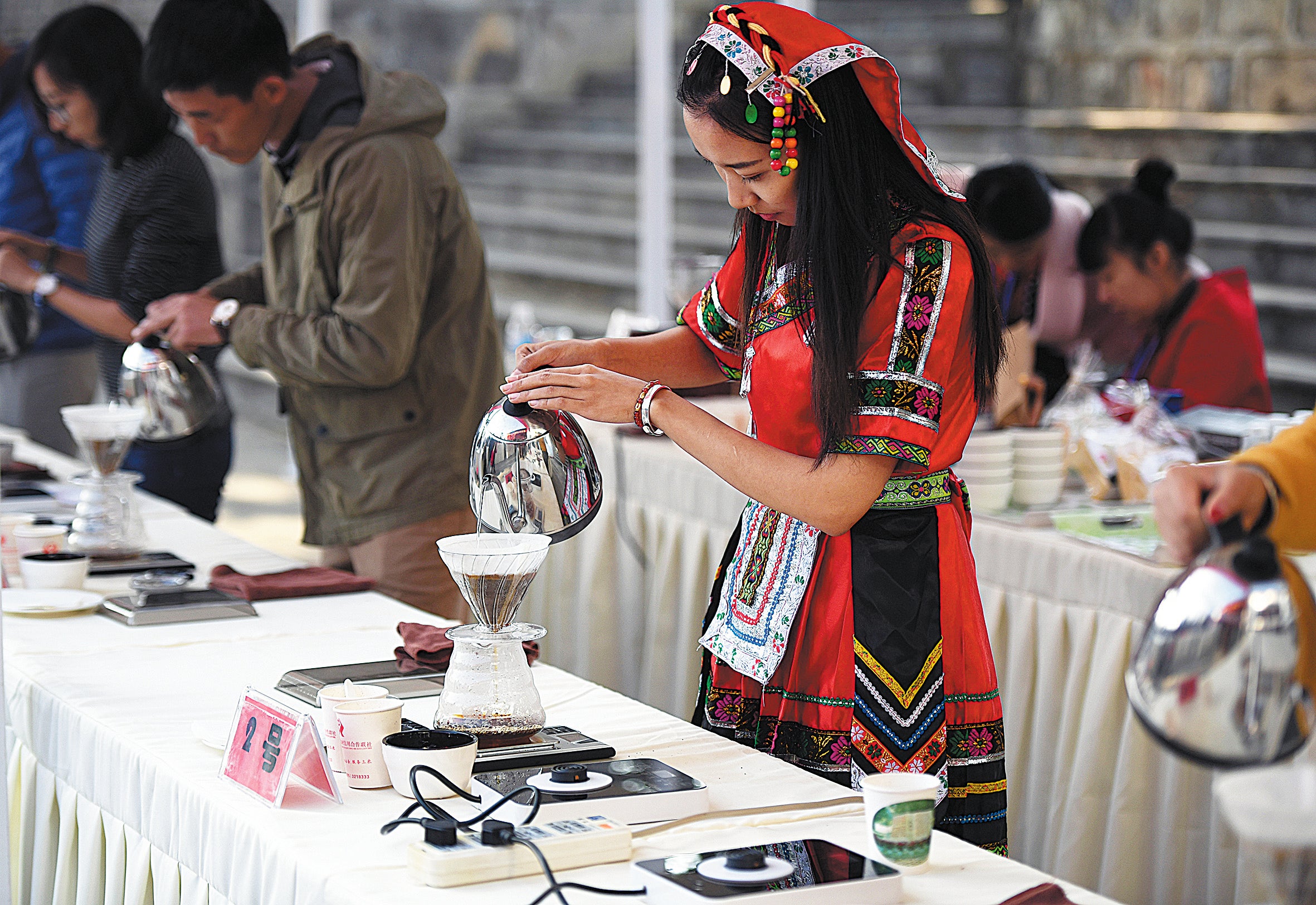In the land of tea, it’s coffee that’s making a splash
THE ARTICLES ON THESE PAGES ARE PRODUCED BY CHINA DAILY, WHICH TAKES SOLE RESPONSIBILITY FOR THE CONTENTS

Chen Yu put his nose close to the cup and took in the aroma of the coffee with a contented whiff. “Yes, this is the smell of the comforts of home,” said the 35-year-old, who works as a systems analyst in Beijing.
Chen began drinking espresso regularly as a college student in Rome about 10 years ago. The increasing popularity of coffee in China has fuelled demand for coffee beans from his native Yunnan province in recent years, with many consumers and growers forecasting rapid growth at home and abroad.
China’s coffee market was worth an estimated 100 billion yuan (£11.4 billion) in 2019, according to the global research company Mintel. The coffee-producing area in Yunnan, China’s largest producer of the bean, has grown steadily over the past 10 years to cover 99,800 hectares by the end of last year. More than 200,000 households, in excess of 1 million residents across at least eight prefectures and 31 counties, are involved in the industry, the local industry association says.
Coffee has been grown in Yunnan for more than a century, its warm climate, high rainfall and altitudes of between 1,640 and 5,900ft providing ideal growing conditions for the plants. Yunnan is known for its high-quality black tea, but in recent years coffee traders and connoisseurs discovered the province’s Arabica beans, noted for their sweet flavour.
In 2019 Yunnan raw coffee beans and related products totalling more than 56,100 tonnes were exported to at least 55 countries and regions including European Union countries, the United States, Japan and South Korea, according to customs figures.

Last year, coffee products from the Baoshan and Pu’er areas of Yunnan was listed among China’s 100 geographical indications under protection in the EU. A geographical indication is a label given to products that possess a specific geographical origin with qualities or a reputation that are due to that origin, the World Intellectual Property Organization says. The Chinese and EU sides agreed to protect 100 of the EU’s and 100 Chinese geographical indications against imitations. Coffee from Xinglong in Hainan province has also been listed.
Hainan has a rich history of coffee cultivation dating back to 1887. Xinglong, a town in Wanning in Hainan, is a major coffee centre boasting ideal growing conditions with its rich soil and tropical climate. The industry was started after overseas Chinese returning from countries in South-east Asia brought their coffee-drinking habits with them. This new demand significantly contributed to the growth of the industry in its early days, said Wu Chunguang, deputy secretary-general of the local coffee industry association.
Xinglong’s 36,000 residents have continued the town’s passion for the beverage. More than 200 cafés do brisk business, and per capita annual coffee consumption is nearly 300 cups, according to Hainan coffee association figures.
Hu Lu, vice-chairman of Yunnan’s coffee industry association, said Europe, the world’s top coffee consumption market, fits perfectly with Yunnan’s production and sales aspirations.
“Offering coffee to Europe will allow more European friends to understand Yunnan and perceive China through a cup of coffee.”
Previously published on Chinadaily.com.cn

Bookmark popover
Removed from bookmarks